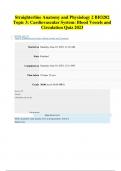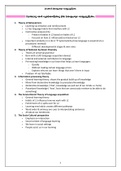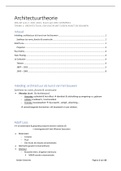Essay
PUB4869 ASSESSMENT 06 SEMESTER 2 2024 PUB4869 ASSESSMENT 06 SEMESTER 2 2024 The Impact of Information and Communication Technology (ICT) on Public Policy Making and Evaluation. By bringing digital technologies that improve government operations'
- Course
- PUB4869 (PUB4869)
- Institution
- University Of South Africa (Unisa)
PUB4869 ASSESSMENT 06 SEMESTER 2 2024 PUB4869 ASSESSMENT 06 SEMESTER 2 2024 The Impact of Information and Communication Technology (ICT) on Public Policy Making and Evaluation. By bringing digital technologies that improve government operations' responsiveness, efficiency, and openness, info...
[Show more]












